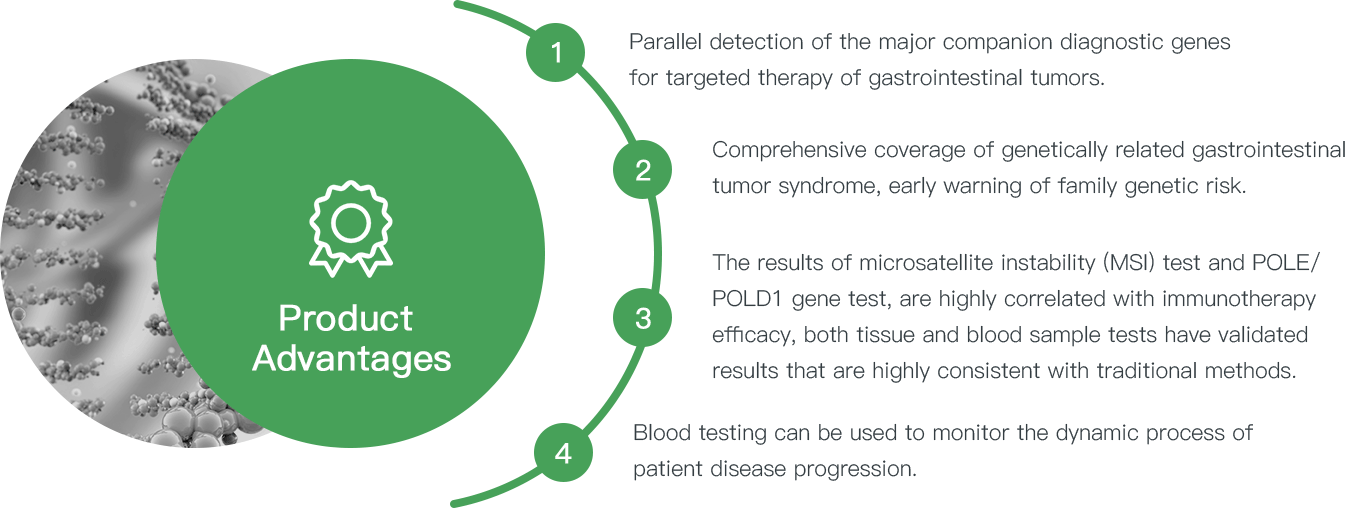
Summary
-
Colorectal cancerColorectal cancer is also called colon cancer, and it is one of the most common malignant gastrointestinal tumors at present in China. According to the latest statistic data, there were about 376,000 new cases of colorectal caner in our country in 2015, which have accounted for more than 1/6 of the global incidence cases of colorectal cancer. And in recent 10 years, the morbidity of colorectal cancer in China has been tending to increase. In the guideline of cancer in United States (NCCN) clearly recommend that patients with colorectal cancer must detect the status of genetic mutation of KRAS, NRAS and BRAF and so on before using Cetuximab.
-
Gastric cancerChina is one of the countries with the highest incidence of gastric cancer, and new cases of gastric cancer in China account for more than 40% of the world. According to the latest statistics, there were about 679,000 new cases of gastric cancer in 2015, and the death toll was about 498,000. The mortality rate ranked second. Irregular diets, Helicobacter pylori infection, and genetic factors are important causes of gastric cancer. Targeted treatments in gastric cancer include targeted therapy for Her2-positive patients. There are also some new targeted therapies (eg. MET) that are still under development.
-
GISTGastrointestinal stromal tumors, the most common mesenchymal tumors of the gastrointestinal tract, originate from any part of the gastrointestinal tract, with the stomach (60%) and the small intestine (30%) being the most common primary sites. According to the latest statistics, there are about 18,000 new cases of GIST in China. Currently, FDA-approved GIST-targeted drugs include imatinib, sunitinib, and regorafenib.
Colorectal Core
One-stop gastrointestinal tumor gene testing solution integrating targeted therapy, immunotherapy, companion diagnostics, and genetic screening

Applicable Populations
The solution applies to gastrointestinal cancer patients that need acquire molecular diagnostics information to help work out targeted and immune therapy and expect to understand genetic risks of their families.